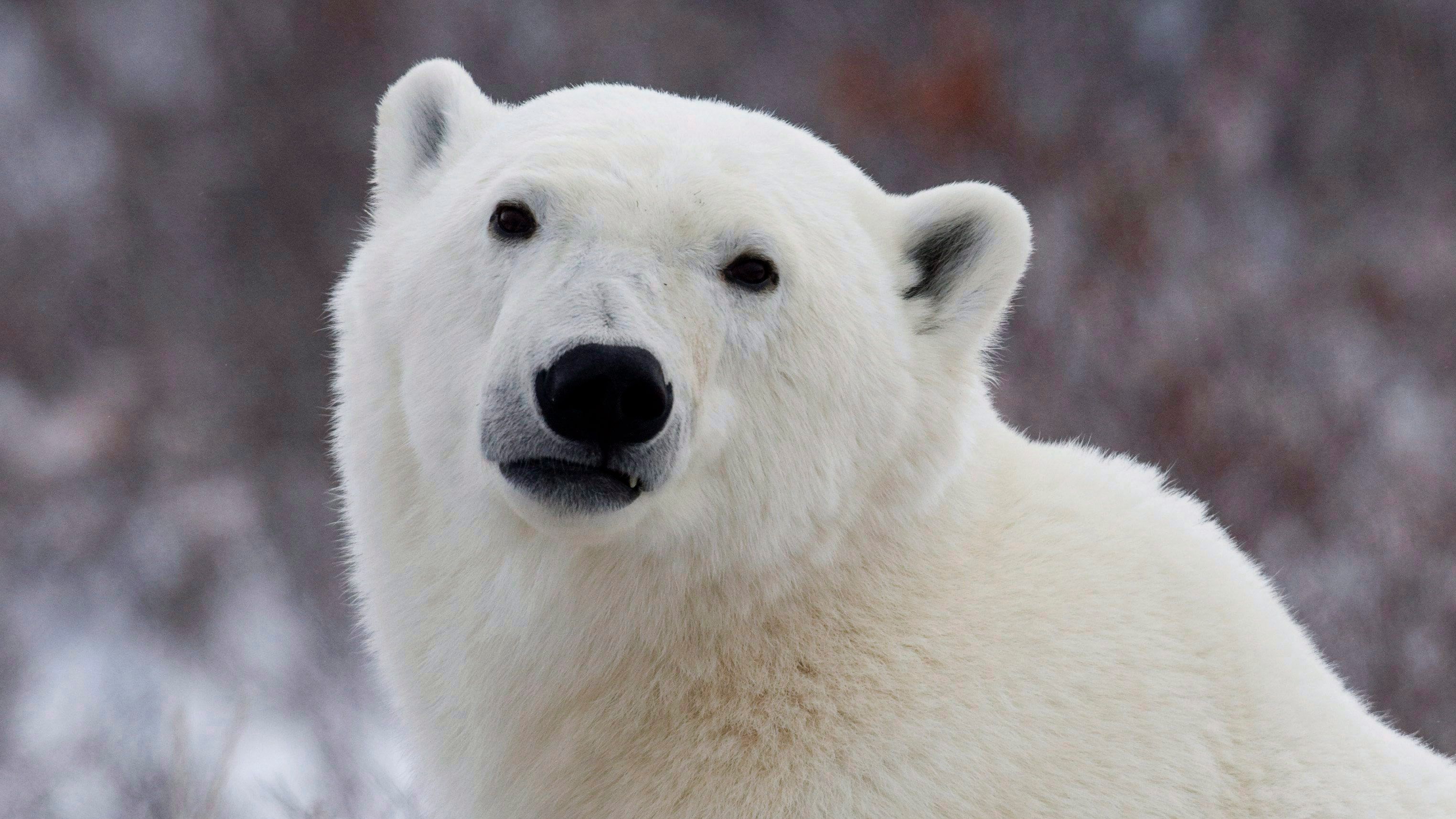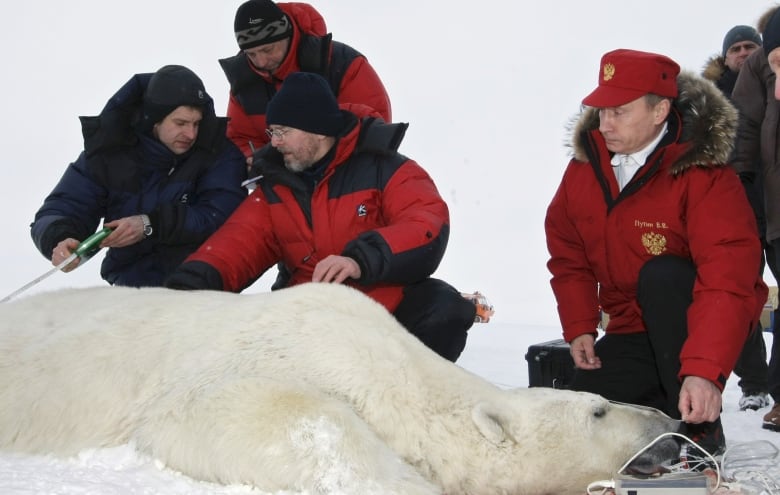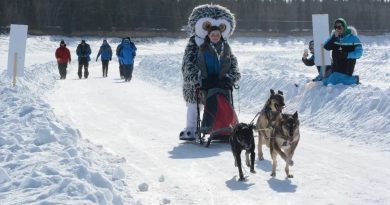Russian Arctic town overrun by polar bears

People in Russia’s eastern Arctic are scrambling to come up with a plan to take back their community after it was overrun by dozens of polar bears during the weekend.
There are so many bears — local officials say they counted as many as 52 — that Russian TV says local people are calling it an “occupation.”
On Saturday, dozens of large adult animals, as well as many cubs, moved into the town of Belushya Guba, or Sturgeon Bay, a military community of 2,500 people on the far northern archipelago of Novaya Zemlya.
While polar bear sightings are common in Russia’s High Arctic, the brazenness of the animals has taken many people by surprise.
Video taken near the town’s garbage dump showed as many as 20 or 30 animals grunting and gorging themselves on discarded food.
“They’re not afraid of anything,” said a voice on the video.
Security cameras showed silent images of adult bears entering buildings, and peering into the windows of people’s homes.

In another video, a surprised man is seen fleeing his house as a bear sniffs around his outside deck.
A woman, possibly his wife, is heard screaming, “Anton, get out!”
Gigansha Mosin, a local government official, told Russian state television that the community has declared a state of emergency with people told to stay inside.
“We put up extra barriers near the daycare upon the request of parents. We’ve organized buses for the kids. They are patrolling the whole village,” said Moswin.
“We are trying to chase them out using tractors.”
Warming climate
In a statement, the Russian branch of the World Wildlife Fund blamed the influx of bears on a warming climate causing a loss of sea ice, which has forced the bears to look elsewhere for food.
“Such a massive accumulation of bears is a unique case for Novaya Zemlya,” said the statement. “But it only confirms the trend: people and predators in the Arctic are increasingly meeting each other.
In an interview with CBC News, Mikhail Stishov, the project manager for Arctic biodiversity with the WWF, said the Novaya Zemlya situation has been made worse by a lack of awareness in the community.

“They had open garbage places, and it looks like recently they put something out that was very attractive for polar bears,” said Stishov.
He said access to Belushya Guba, which is about 1,800 kilometres north of Moscow, is restricted by Russia’s military, which makes it difficult for groups like the WWF to help people bear-proof their community and conduct education campaigns.
This is hardly the first time bears have moved into the town. The first sightings this winter came as early as October, and the World Wildlife Fund’s statement noted it has been worried about interactions between bears and people in the region for several years.
The WWF says in 2016 it drew up a plan to try to decrease problematic interactions, which included basic rules such as not having any open garbage and not feeding animals, but the organization notes the rules were never implemented by Russia’s military.
Dump cleanup
Scientists estimate the global population of polar bears is roughly 30,000 animals, with about a third of them living in Canada and Greenland.
In Russia, polar bears are listed as an endangered species. Stishov says global warming has arguably affected animals in Russia’s eastern Arctic, more severely near Novaya Zemlya than elsewhere.
“There is no ice in the sea near this place,” he told CBC News.
Authorities have indicated they intend to try to clean up or get rid of whatever the bears were attracted to in the garbage dump.
But now that they are in town, authorities are worried the bears may not be in a hurry to leave.
Russian state TV has suggested authorities may consider a mass cull of the polar bears, but wildlife groups are dismissing that.
Immobilizing and transporting
Nonetheless, forcibly relocating so many animals will be difficult.
“Usually you think about immobilizing and transporting polar bears. But it doesn’t work [to move them just] 20 or 30 kilometres. They go back,” said Stishov.
Most successful relocations typically involving moving bears several hundred kilometres, but in this case that may not be practical.
“It’s not so difficult to deal with one or two polar bears, but how to deal with 50? I’m not sure.”
The Russian government has dispatched a team of polar bear experts, including members of the World Wildlife Fund and the Russian Arctic National Park, who will arrive in the community tomorrow to get some answers, and offer suggestions on the next moves.
Related stories from around the North:
Canada: Archives – Dealing with problem polar bears in the Canadian Arctic, CBC Archives
Finland: Photographer tells how he snapped picture of rare white bear cub in Finland, Yle News
Norway: Could drones help prevent polar bear attacks on the Arctic archipelago of Svalbard?, The Independent Barents Observer
Russia: Polar bears greatly exposed to toxic chemicals in eastern Barents Sea, The Independent Barents Observer
United States: After deadly bear attack, hikers in Anchorage, Alaska weigh risks, Alaska Public Media



